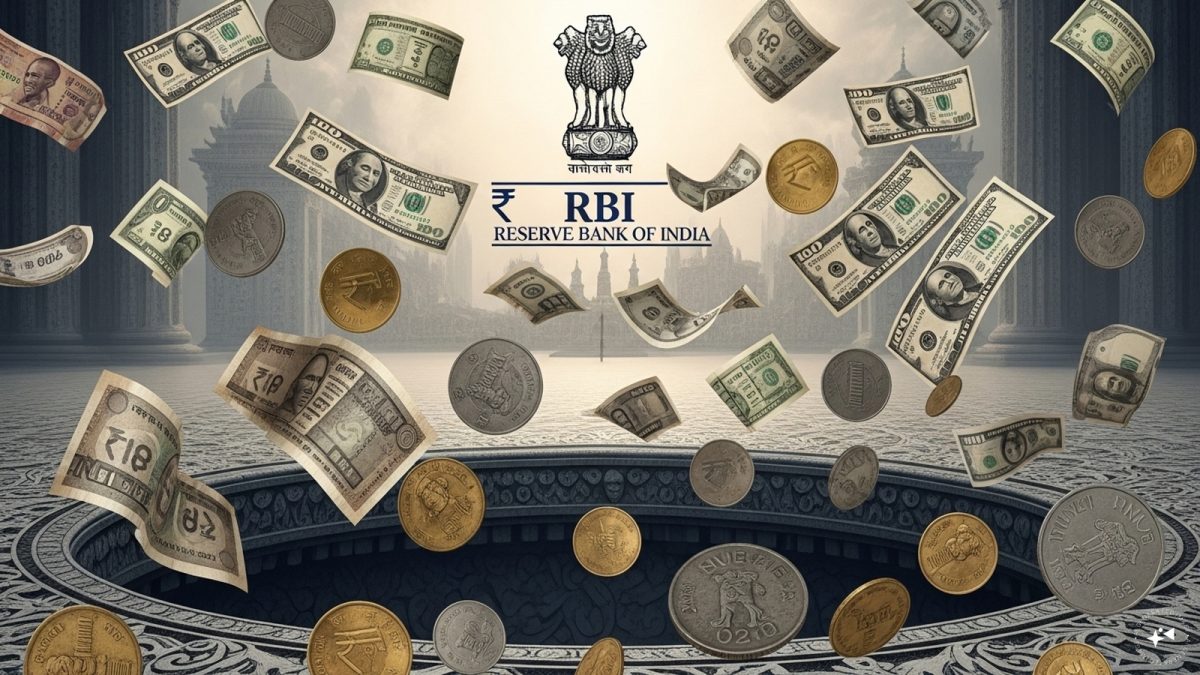In the wake of tariff-infused uncertainties, India’s foreign exchange reserves have depleted by $9.3 billion in the past week. Reserve Bank of India (RBI) Governor Sanjay Malhotra Wednesday (August 6) revealed that the forex reserves had fallen to $688.9 billion as of August 1.
According to economists, the shift can be attributed to measures taken by the country’s central bank to defend the rupee. Updated data about the forex reserves would be provided by the RBI by the end of this week.
Rupee getting weaker
Reuters reported that the rupee’s value has fallen by 1.18 per cent against the US Dollar in the week through August 1, the sharpest weekly decline in three years.
The Indian rupee has faced a challenging week, declining by an additional 0.2 per cent and narrowly avoiding a record low, thanks to timely interventions by the Reserve Bank of India (RBI).
Trump’s tariff salvo
The central bank’s efforts to prop up the currency come as India braces for new economic pressures, including a looming 25 per cent tariff on its exports to the United States set to take effect on Friday.
Adding to the tension, US President Donald Trump has warned of imposing “very substantial” additional tariffs on India, citing its continued oil imports from Russia. On Tuesday (August 5), Trump escalated his rhetoric, announcing plans to raise tariffs on India “very substantially over the next 24 hours.”
He argued that while India is prepared to offer the US “zero tariffs” under a proposed trade deal, this concession falls short because of New Delhi’s purchase of Russian oil. Just a day earlier, Trump had accused India of buying “massive amounts of Russian oil” and reselling it “on the open market for big profits.”
India has not taken these accusations lightly.
In response to Trump’s announcement of a 25 per cent tariff on Indian goods starting August 7, coupled with an unspecified penalty for its defence and energy imports from Russia, New Delhi issued a strong rebuttal on Monday. The Indian government called the targeting of its economy “unjustified and unreasonable” and vowed to take “all necessary measures” to protect its “national interests and economic security.”
Impact Shorts
More ShortsAmid these external pressures, the RBI maintained its steady stance during its policy review on Wednesday, leaving interest rates unchanged and reaffirming its existing economic growth forecasts.
Umesh Kumar Mehta, chief investment officer at SAMCO Mutual Fund, noted that the weakening rupee and narrowing global interest rate differentials left little room for rate cuts. “Given that the Indian rupee is weakening and narrowing of the global interest rate differentials, the scope for rate reduction was slim,” Mehta said.


)

)
)
)
)
)
)
)
)



